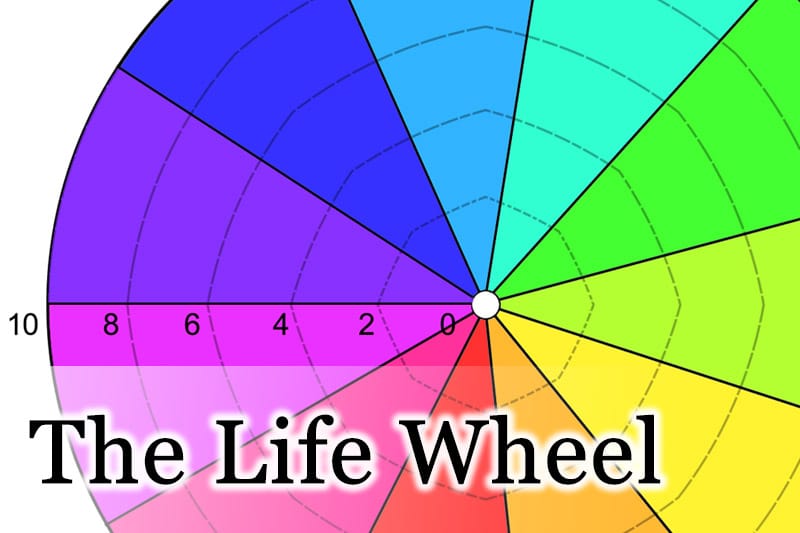
(Image: Personal Excellence)
Today I’d like to talk about the life wheel. It’s one of the tools I use in my coaching and it will be an essential tool in your growth journey.
What is the Life Wheel?
The life wheel is a wheel that provides a snapshot of how you’re doing in your life now. It is a circle divided into segments, usually eight, that represent the key areas of your life. Here’s a sample diagram:
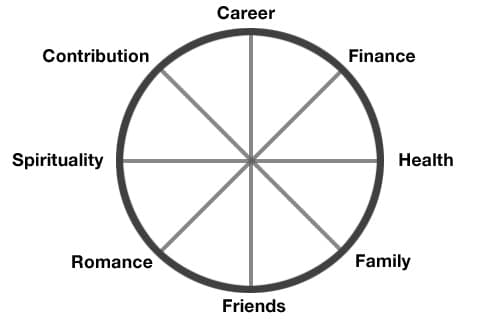
There are different variations of the life wheel, with common segments being career, family, love, friends, finance, and health. The remaining segments are more varied. They can be recreation, spiritual, or others.
Each segment comes with a scale of 0-10 where you rate how well you are doing in the area right now. 0 is the lowest score and 10 is the highest score. After you rate yourself in each area, you mark out your scores on the wheel and connect the dots. You will then get a web-like diagram which shows you how you’re doing in life right now!
This web-like diagram is great as it provides an instant visual snapshot of your current life status. After all, it’s hard to get a big picture of what’s happening in all other areas of your life when you’re focused on the little daily tasks. You may subconsciously know that you’re neglecting an area of your life, but this neglect may not be obvious. Subsequently, you have no real call to action. The life wheel lets you spot gaps in your life right away so that you can intervene and work on the low-scoring areas before it’s too late.
When I first used the life wheel with my clients, I used an 8-segment wheel like the above. After a while though, I realized that there are important areas left out in an 8-segment wheel. I then created a modified version of the life wheel with 10 segments that I identified as the 10 key areas of our life:

(Image: Personal Excellence)
- Career/Business/Studies — The name of this area depends on what’s applicable to you right now. Use “Career” if you’re employed, “Business” if you’re running a business, or “Studies” if you’re studying. This is considered a crucial area as work and studies usually make up a large portion of our lives.
- Finances — Your finances. This includes your income, savings, and assets.
- Health — Your physical health. This includes your diet (whether you’re eating healthy), fitness (whether you’re having enough activity and movement), sleep and rest (whether you’re having enough rest), and your overall physical health.
- Family — Your relationship with your family members, including your parents, siblings, and children (if you have any).
- Friends — Your social life. This includes your social relationships and friendships.
- Love — If you’re attached, this refers to the state of your relationship with your partner currently — if it’s where you want it to be, and how happy you are with him/her. If you’re single, it refers to how happy you are as a single. Just because you’re single doesn’t mean you’ll automatically get a 0/10; similarly, just because you’re attached doesn’t mean you’ll get a 10/10.
- Self — Your relationship with yourself, including your self-love and self-esteem.
- Recreation — Your level of fun and enjoyment in life. Whether you are able to pursue your personal hobbies and interests.
- Contribution — How you’re giving back to others, such as society and the world. Social causes (like environmental causes, animal rights, and humanitarian causes) fall under here.
- Spirituality — The development of your spiritual self. If you have a religion, this refers to how connected you feel with your religion. If you don’t have a religion, this refers to your connection with your higher self and the universe.
There’s a reason why the categories are ordered as such.
The first 3 areas — Career, Finances, Health — form the material and physical aspects of our lives. The next 3 areas — Family, Friends, Love — form the relationship aspect. The next 2 areas — Self, Recreation — are about the self. The last 2 areas — Contribution, Spirituality — tend to come in after we have the first 8 areas in place, and they relate to our connection with the universe and our spiritual self.
In general, people tend to focus on developing the material and physical parts of their lives first, as we live in a physical world and we need to secure our physical needs first as part of survival. This is followed by the relationship and self aspects of their lives. When these main blocks are in place, they start to examine their relationship with the world and their spiritual self.
While the order will differ from person to person, ultimately all 10 areas are essential to live your highest life. It is through these 10 areas that we develop our Mind, Body, Heart, and Soul, and become our highest self.
Some people may feel that only certain areas of the life wheel apply to them. They may think that Spirituality isn’t important to them as they’re free thinkers (a misconception as Spirituality refers to your connection with your higher self and the universe; it applies even if you have no religion). So they ignore the spiritual aspect of their lives and build tangible things like Career, Love, and Health.
However, Spirituality relates to our soul and it’s an essential part of living a full life. While they start off working on tangible things like career and money, at some point Spirituality becomes important as they seek higher-order things in life. This is when they start to have a midlife crisis and look for a deeper meaning behind their existence. (You will work on your life purpose on Day 16.)
Some people disregard money (Finances), saying that money isn’t important. Yet money is a symbol for value in today’s world. While it’s not a perfect measure of the value one is creating, it’s the currency that people use today in the exchange of goods and services. When you reject money, you reject receiving value for your work. In the long run, rejecting money makes it difficult for you to achieve your bigger goals because you lack the monetary resources to do so.
There are people who disregard Recreation, saying that they don’t need to pursue any hobby and that their work is their passion. But Recreation lets us explore other interests and other aspects of ourselves, which give us new inspiration for our work and life.
The same goes for people who deny needing Friends, Family, Love, Contribution, and even a passion-filled Career. We work for many hours of our waking life, so it’s important to have a job that we love. We are social creatures, and having meaningful relationships is important to our existence. For Contribution, no man is an island and we are all connected by living in this world. Our actions and inaction affect the world on a daily basis, whether we realize it or not. It’s important that we work on making the world a better place, both for ourselves and for future generations.
For Self, it’s an important yet often neglected part of the wheel. Do you love yourself? Do you believe in your capabilities? Do you tend to think about yourself in a positive or negative light? You are the one person who will be with you throughout your entire life. If you don’t have a healthy self-image, then how do you expect others to respect you? If you have a poor self-image, other things will suffer in your life. If you have a strong and healthy self-image, it provides you with the foundation to excel in life.
Ultimately, all 10 areas of the life wheel are important as they are all parts of your life. Disregarding any one area may help you gain headway in the other areas initially, but you’ll eventually stall in your growth. Because when you disregard an area, you disregard a part of yourself and hence put your life on hold.
Today, your task is to assess your life with the life wheel! :)
Task: Assess Your Life with the Life Wheel
Part 1: Assess your life (20 min)
- Rate each area of your life on a scale of 0-10 (where 0 is the lowest, and 10 is the ideal state). Use the questions below as a guide.
- Career/Business/Studies — How are you doing in your career, business, or studies? Are you happy with your current progress and results? Are you growing to be your highest self through this medium?
- Finances — How are you doing in your finances? How are your income, savings, and physical assets?
- Health — How is your health? Do you have a healthy diet? Do you get regular movement and activity? Do you get enough rest and sleep? What is the overall state of your physical health?
- Family — How are your relationships with your family members? This includes your parents, siblings, and children if you have any. Do you spend enough time and quality time with them? (You can have individual scores for each family member if it is a distinct relationship.)
- Friends — How is your social life? Do you have positive, like-minded friends? Friends you can talk to and confide in? How are your relationships with them?
- Love — If you are married or attached, how happy are you in the relationship? How happy are you with your partner? If you are single, how happy are you by yourself?
- Recreation — Are you having fun and enjoyment in your life? Do you have time to pursue your hobbies and interests?
- Self — How is your relationship with yourself? Do you love yourself? How is your self-esteem and self-image?
- Contribution — Are you contributing to the world beyond you, such as society, the world, and social causes? (Environmental causes, animal rights, and humanitarian causes fall under here.)
- Spirituality — How is your connection with your spiritual self? If you have a religion, how connected do you feel with it? If you are non-religious, how connected do you feel with your higher self and the universe?
- Write down why you gave that score. Feel free to write as much or as little as you want!
- Draw your life wheel.
- Draw a circle and divide it into 10 equal segments, like so:

- Mark out the scores for each area on the diagram. Then, connect them! You should have a continuous line that connects all the scores together and returns to the original point.
- Draw a circle and divide it into 10 equal segments, like so:
Different Life Wheel Shapes
There are four possible shapes you can get. Generally, the bigger the web, the better you’re doing, though there are exceptions as I share below.
#1: Constricted web with low scores on most fronts
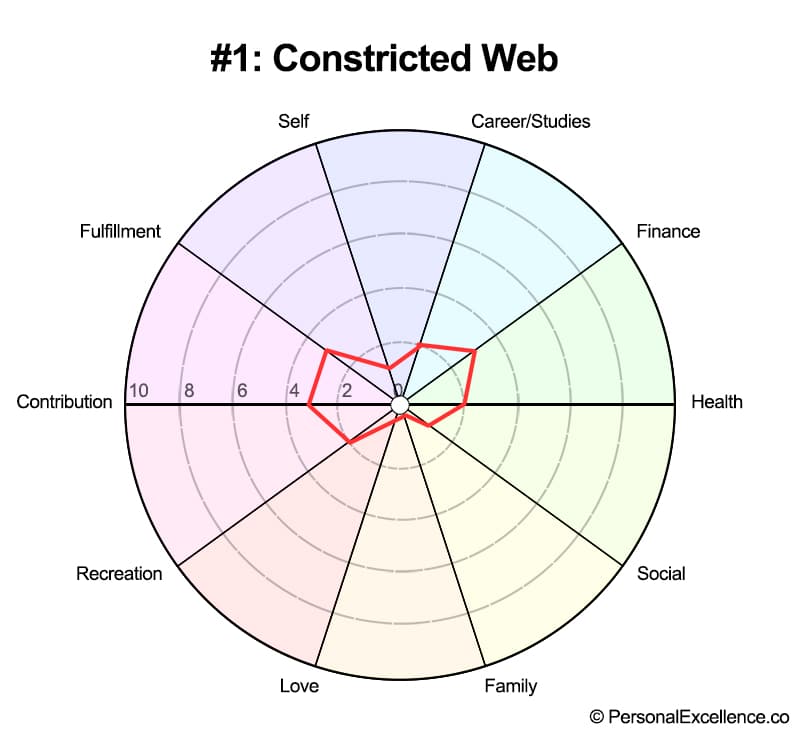
This means you’re facing many limitations in life right now. Perhaps you have been putting many of your goals on hold, or compromising on your goals. This could be due to your life circumstances or limiting beliefs. Reflect on this. Why do you have a constricted web currently?
Yet without fixing this, you’ll keep shirking in your life until you are backed into a corner with nowhere to go.
If you have a constricted web, examine it closely. What restrictions are you facing? Are they external factors, self-imposed factors, or both? How can you address them?
#2: Lopsided web that’s high in some areas but low in others
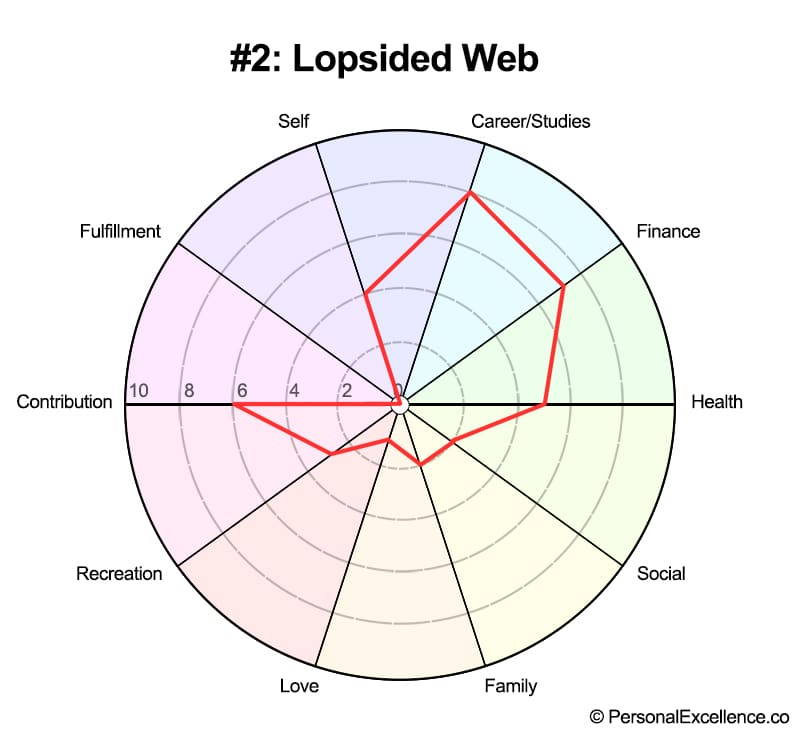
That’s great — this means you are doing very well in some areas! However, you’ve neglected other parts of your life in the process. As I mentioned, all 10 areas are essential to living your best life. Neglecting any of them will only limit your life experience in the long run.
First, mark out the 2-3 areas you’re severely underperforming in. Understand why that’s the case. What can you do to bring them back up? Next, identify how you are going to improve on them as you continue to do well in the high-scoring areas. We don’t want to neglect the high-scoring areas just to bring the low-scoring areas up – that will just be switching from one problem to the next! The long-term sustainable solution is to form a plan where you can maximize all the areas together.
#3: Broad web with generally high scores
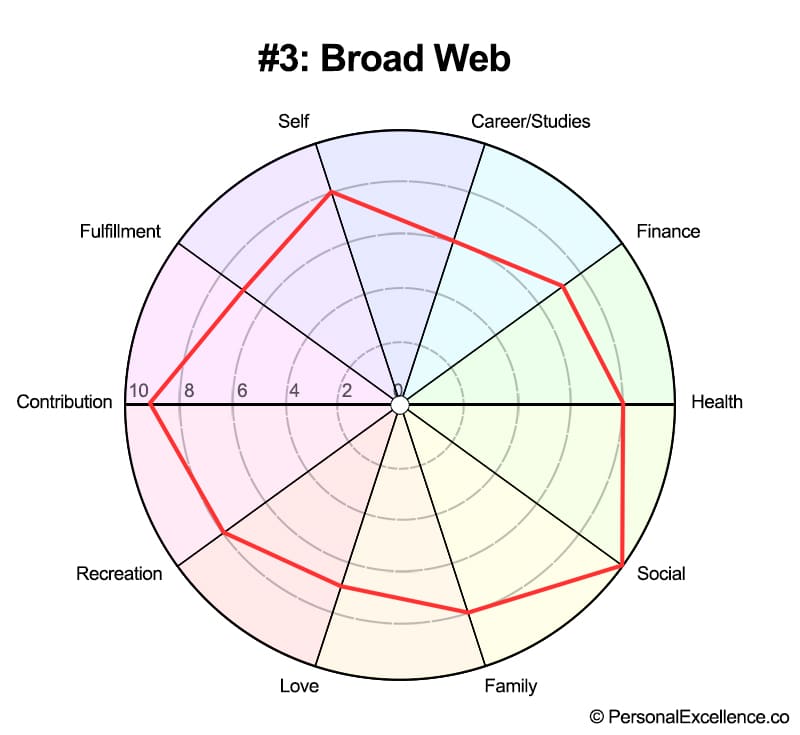
This means you’re doing very well! This is fantastic work and a testament to all the hard work you’ve been putting into your goals. Congratulations!!
At the same time, there is always room to improve. Be careful of what I call the complacency and self-contentment trap. With the complacency trap, people rate themselves highly and feel that there is nothing left to improve because they are doing so well — yet growth is a never-ending journey and we can always do better. With the self-contentment trap, people focus too much on feeling happy despite glaring issues in their lives, to the point where they make do and develop a complex set of beliefs to convince themselves that they are “happy” when, deep down, they are not.
Remember that no matter what we are doing, there is always room to improve. A thriving business can always grow further. A relationship that is great can always be better. It’s fantastic that you have such high scores in your life now. Moving forward, how can you take things to the next level? What is the next milestone you want to achieve in life?
#4: Complete circle with full scores
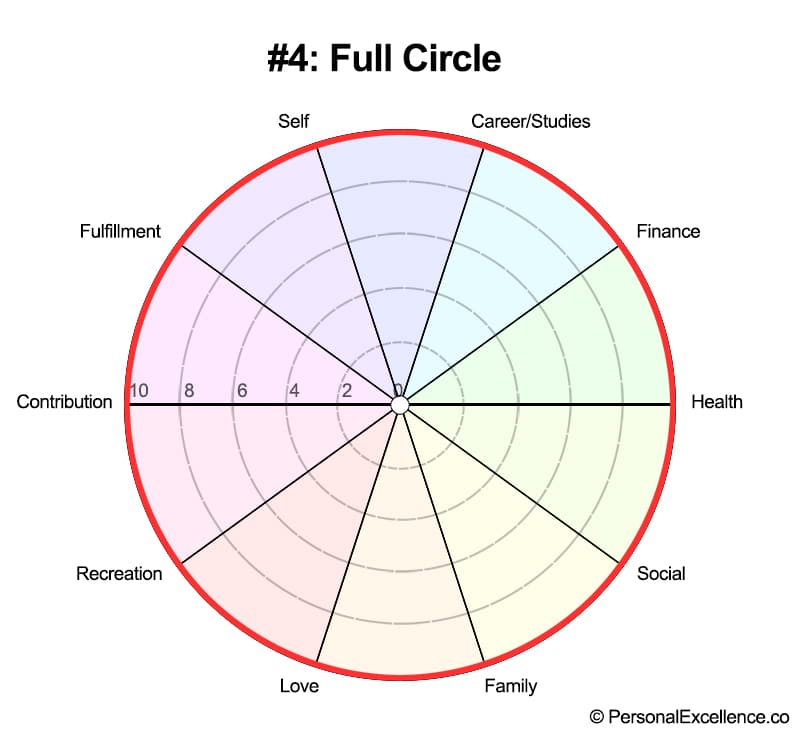
Last but not least, the full circle — your ideal life. Here, full 10/10 scores are more like ideals to work toward vs. a permanent end state that you reach and declare yourself “done.”
Meaning, just because you rate yourself 10/10 now doesn’t mean you’ll automatically have this score forever. For example, maybe you rate your relationship with your partner a 10/10 today — doesn’t mean it’ll be 10/10 forever. You still need to put in the work to build your relationship and grow in love with your partner. Also, perhaps your 10/10 now is to enjoy your relationship with your partner. Five years down the road, perhaps you want to start a family together.
In that sense, 10/10 is an evolving vision. As you grow and achieve your goals, your definition of 10/10 will grow too. :)
Part 2: Reflection… (20 min)
Now that you have drawn your life wheel, it’s time to do some reflection.
- What is the shape of your wheel? Why? Refer to the 4 shapes above and pick the closest one. Whatever your life wheel looks like now, it’s not a chance occurrence. If you did this assessment a month or two ago, you’d likely have gotten a similar shape. The bigger question is, why? Read my analysis of your wheel shape above and reflect on your current life circumstances. What are the 3 biggest reasons why your wheel looks like this?
- Which are your lowest-scoring areas? Why do you think this is the case? All 10 segments are important to live your best life. Some people may think that they can ignore 3-4 segments and get a 0-1 score in those segments, but it doesn’t work that way. Whenever there’s a part of your life that is put on hold, a part of you is blocked too. Which segments have the lowest scores? Have you been putting them off? Why?
- Are you happy with your wheel? What if you have to stick with this wheel forever? How would you feel? Would you be happy? Be honest with yourself.
Part 3: Action (20 min)
- Moving forward, what are your biggest priorities to achieve your ideal 10/10 wheel?
- What are the biggest action steps you can take to achieve your goals?
Other Exercises For You To Try Out
If you’ve found the life wheel exercise useful, be sure to check out:

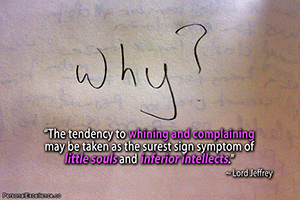
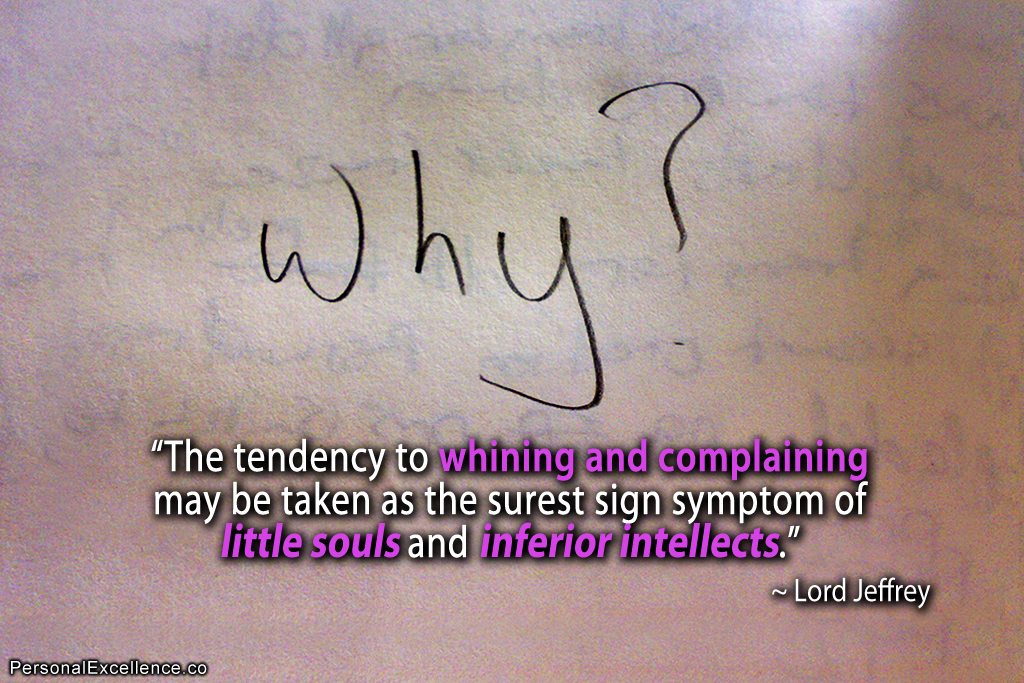



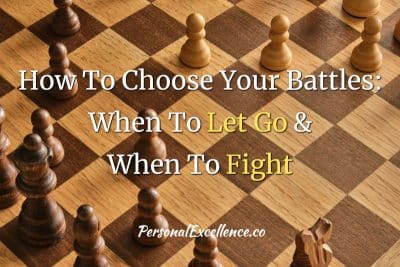
 I hope you find my content helpful. Join my community of 65,000 readers and get my latest articles delivered to your inbox. Your email is safe and I never send spam.
I hope you find my content helpful. Join my community of 65,000 readers and get my latest articles delivered to your inbox. Your email is safe and I never send spam.
Pretty cool method, I’m going to alter it a bit to change my perspective on life. But alltogether very useful, practical and insightful! Thanks for sharing.
This is an eye opener!
Definitely will be taking action
Great motivator :)
Glad I found your site at just the right time.
I did it ! :)
Have a very weird web ! Will take me a while to sit and see why exactly it is the way it is!… Isn’t it amazing that you seldom realise that there is so much to do with your life! :)
OK I have an issue with romantic love. I’m a single 64 yr old woman. I don’t have anyone special in my life now. I don’t expect to find anyone at this late date and don’t want to obsess over it. My love life is all in the past.
when i think about it further. the best score for the life wheel is actually a balanced score at all area, and any number will do. there’s no reason having a high score in some area, when you realize that the number is objective, fluid(keeps changing depending on your conscious/awareness level), and the main reason of putting other areas on hold.
if my theory is correct, there should be 2 ways to balance it, the common one is to improve the area you are poor in, the other one is to WORSEN the area you are good in. both of the method is equally hard to do, but when the score is balanced it should be easier to increase the quality of all area you balanced…
and of course most of us is greedy, and not ready to sacrifice what we earned from hardwork in order to balance life, so the first option will be more popular.
Hi Celes!
(I’ve been learning English, but I’m not good yet. please pass some(or frequent :mrgreen: )mistakes.
I really want to share my thinking.)
I’m your fan and it’s first time to leave you a comment.
I had already heard the concept of balanced life.
But this diaram is so remarkable! I was shock for visible state of my life.
All area was overall low.
In fact, I lost my passion 4~5 years ago for some reasons.
My life wheel was exactly reflecting my past life.
The thing I had to, because I chose to do, like club activity (undergraduates’ speech club) and school life was ruined. But I wanted to hide the facts so I lied to my family, freinds.
For few years, I have been seen like I’m doing my best. But It was revealed.
Now my relationship with my family and friends is not really good.
You said ‘prioritize weak area based on your life wheel’
So, I decided to put my full effort to study for dean’s list and appliying exchange student.
I think these two goal makes me have good relationtion to my family , friends and my self.
I felt stuck and likely forgot how to start. Your articles including detailed steps and tools
are extremely helpful to me. Thank you~ :wink: :) :-P :mrgreen: :lol: :-D
Hey Min, here’s an official welcome to the blog and congratulations for your first comment :D I’m glad the life wheel brought awareness to how you’re doing in areas of your life and what you should start focusing on. I wrote a 3-part series on How to be a Dean’s Lister earlier this year which will fit just nicely with your goal – https://personalexcellence.co/blog/deans-lister/.
Keep reading and sharing your thoughts Min! Look forward to connecting with you more here :D
I really like your articles Celes, but I think family should be everyone’s number one priority. If it isn’t, that’s a serious, serious problem. I hope you also improve your relationship with your family. Great article, like always :wink:
WOW! Very insightful article – I love the connecting the dots part of it – I have seen the wheet before but never presented like this – awesome material!!
I had an interesting time using the life wheel as you described.
I noticed that the values I gave for each of the areas was related to how well I perceived myself to have done all that (‘I think’) I need to do.
For example, I had finances as 10/10. Because I have a plan that is easy to follow and I think it will keep my finances in great stead. I certainly don’t have all the money I could want but because my focus is on fulfilling my plan I feel my finances are great!
On the other I had things like personal growth at -50. Not because I am neglecting the area (actually it is probably my major focus) but rather because I am consistently presented with the absolutely incredible potential that each one of us has the ability to experience. I see the misty peaks of possibility and feel like the pinnacle is beyond even sight.
All purely a matter of my perception and focus :D
Jarrod, I love how you stretched the scales and put yourself at -50 in personal growth! Possibilities of growth is indeed infinite – the only limits are us and it’s about how we unlock the limits :D.
The life wheel was a reality check, of the life that I know I have but I so desperately need to change. I’m not saying that my life is a mess but there are areas that I know I need work, and I am trying my darnest to improve I just realize that I have this stuck to the ground feeling at times that just immobilizes me! The exact places that I know I need work are the ones that came out, my circle basically cave in on itself, LOL! I have to work on the spiritual and then all things will follow I believe. I have to create a habit of ready the Bible, I have a very investigative and challenging mind and I want to have a serious talk with God when I hopefully get to heaven about somethings that I just do not understand, in the mean time I have to make the best of the life I have because it is the only one that I have! As my grandfather said when came int the world with nothing and we will leave with nothing, at least while I am here I want to make myself and others happy!
In line with spirituality are wealth and health, unless running behind my one year one is considered exercise that’s about all the movement I get! LOL! so i need to find a hobby? imagine i used to play tennis, and loved it and wealth, as my 22year old brother told me a couple days ago you sticking, you need to find a way, before Christmas. Cause he is now working on creating his own studio to create advertisements and music tracks in his room that he has converted! Actually he is my inspiration, not any other person and for that reason I will make myself proud because he knows I have faith in him and he in turn wants to have that faith in me so, he I come.
Otherwise I love this site! I thank my frustration for helping me to find this site and I will share it with the world.
bye
Hi Celes!
This was a fun and interesting exercise. I loved the concept of breaking down all key areas of my life into one and how each are somewhat interconnected and DEFINE me as a WHOLE. I’m pretty pleased with my results and how broad of a web I got.
High point 10/10: Health/Fitness
Low point 4/10: Business/Career
None of this is really new, but it is a nice wake-up call. I know that I live a fairly healthy lifestyle and I am more active now than I ever was. I take great pride in taking care of myself and doing active things that I find FUN! So, I can see this as being the strongest point in my life. On the other hand, my career path is not really aligned with my passions. I know this. I’m just in a career that financially supports me yet there is no motivation, satisfaction, or growth. I think the health/fitness area compensate for the lack of drive I have in my career path. I know what I should do, yet I made this choice, because it’s the most safe and comfortable. I don’t have the luxury to be too picky as far as careers due to the economic slump and my financial obligations. I just try and focus on the positive aspects and that I at least have a job unlike most. Even though it’s not something I am passionate about, I do other things outside my career that keep me happy and motivated (i.e, fitness, self-growth exercises, meditation, yoga, quality time with loved ones).
In the long-run, I hope to make some dramatic changes to my lifestyle..baby steps first…I’m sure the ideal 10/10 ratings on all areas would be FANTASTIC, but I’m being realistic right now and just really taking my time balancing everything out. Thanks Celes for this and best of luck to you! =)
~Shayne
I love using the wheel of life, and what a brilliant explanation of it:)
When I first saw it I wondered how such a simple tool could have any effect, but as I started to use it I realised that it wasn’t so simple. In fact, it was very thought provoking!
I always ask if I had a wheel like that on my car how comfy my ride would be……usually it’s a bit bumpy and I know there is work to do….
Hi Celes,
I’ve always thought myself to be a balanced person — I work hard at work, I put friends and family first and I constantly monitor my personal growth and leisure time. But I realized that I live too much in the present that I’ve failed to see the big picture in life. Doing this life wheel exercise has shown me that it’s okay to take time off from being so social all the time in order to focus on two very important life areas that I ranked 1 – finance and health/fitness. Now, I’m going to re-evaluate my life and figure out why I neglect those two so much. And once I figure it out, I’m going to fix it!
Thanks,
Myra
Myra, that’s fantastic! Thanks so much for sharing; I really appreciate your earnesty. I’ve a couple of questions: Why do you rank them as 1? What is a 10 to you? It’s great to understand why you neglect them. At the same time don’t focus too much on the lack but focus on your envisionment of what you want those areas to be. It’s a more aspirational guide forward :D Please update us on your progress!
Celes, thanks for sharing this resource. I work through a guide called “Best Year Yet” every single year, and it has this very same wheel. It serves to put our roles into perspective, and it really does help us keep on track for balanced success. I have to most often re-balance my schedule to work on relationships, since I love my work so much. It won’t do any good if I get to the end of my life wishing I had put more time into my relationships than into my work :)
Thanks a lot for sharing Steve :D. I may have seen the wheel you’re talking about before – is it the wheel where, instead of life areas, it’s filled with your roles such as being a son, husband, teacher, mentor, employee, friend etc etc? I think that’s a great tool to get an assessment on how we’re doing too – I’ll put it as a to-write topic for the future.
Commenting for this post is closed.